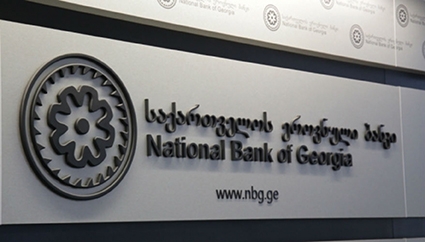NBG Loan Regulations Have Decreased the Consumer Loan Portfolio
The President of the Association of Banks of Georgia, Alexander Dzneladze, said in an interview with BM.ge over the weekend that the consumer lending portfolio in the banking sector has stopped growing, and even started to decline in some sectors. According to Dzneladze, the financial market has been seeing significant changes since May. On May 7, 2018, the National Bank of Georgia (NBG) instituted new regulations which set limits on banks issuing loans without proof of assets and revenue. Without an analysis of customer solvency, consumer loans now must be 25% of less of a bank’s supervisory capital and loans guaranteed by real estate assets must be less than 15%. Also, loan to value ratio must stay below 50%. Additional responsible lending regulations are set to kick in from 2019, and Dzneladze anticipates a further drop in the loan market. The regulations are designed to protect consumers and encourage healthy credit portfolios at Georgia’s commercial banks.
Many aspects of the reality of the individual lending market today are significantly different from the vision the National Bank had initially laid out when developing the regulatory framework, Dzneladze claims.
"The NBG took a big step with the changes for the banking sector from January 1, 2019. The regulations are quite different from the first version,” noted Dzneladze. The Association of Banks of Georgia, led by Dzneladze, is made up of 16 members. Members are commercial banks registered in Georgia, including the major players Bank of Georgia and TBC Bank. The Association conducts trainings for their members, market research, a variety of projects, and disburses grants.
Dzneladze explained that some changes are currently being discussed, including the issue of confirming a loan applicant’s revenue. In Georgia, which has such a large informal economy, a large proportion of the population does not report their full income to the Revenue Service.
"For example, when the declared income of a citizen is less than 400 GEL per month, it is often the case when people have additional revenues, though there is no official record of these revenues. For example, private teachers, taxi drivers, self-employed people, farmers, or those living on remittances. It’s a particularly big problem in agriculture. Now we are being consulted to make the best of all these regulations in order to avoid additional problems,” said Dzneladze.
In the last several years, household debt in Georgia has been growing rapidly. Many people have overdue loans and the volume of responsible crediting is low.
When the regulations were developed, the Minister of Finance was current Prime Minister Mamuka Bakhtadze. In his role as minister, Bakhtadze supported the NBG regulations and expressed concern that excessive debt is a serious problem for the country. He also emphasized the necessity of regulating not only Georgia’s major commercial banks, but also the ubiquitous quick, online loan services.
By Samantha Guthrie











